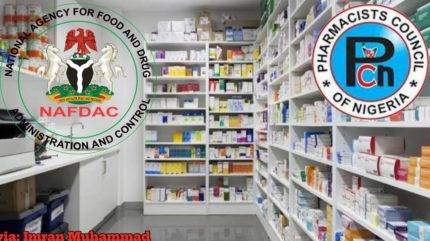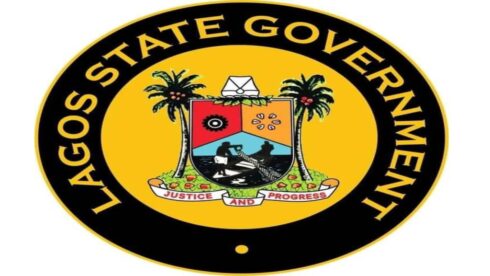Crackdown on Unethical Practices: NAFDAC and PCN Close 1,321 Patent Medicine Stores in Kano
In a concerted effort to overhaul the pharmaceutical landscape and curb unethical practices, the National Agency for Food and Drug Administration and Control (NAFDAC) and the Pharmacist Council of Nigeria (PCN) have joined forces in a sweeping operation. On Monday, their collaborative initiative culminated in the closure of over 1,321 patent medicine stores situated within the Sabon Gari open market in Kano. This decisive action marks a significant step towards ensuring the safety and integrity of pharmaceutical products available to the public, addressing long-standing concerns about the proliferation of substandard drugs and unscrupulous practices within the sector.
The crackdown underscores the commitment of regulatory authorities to enforce stringent standards and uphold ethical conduct among pharmaceutical retailers. By targeting the Sabon Gari market, a hub notorious for the sale of unregistered and counterfeit medicines, NAFDAC and PCN are sending a clear message that such activities will not be tolerated. This concerted effort is part of a broader strategy to streamline the pharmaceutical supply chain, safeguard public health, and foster trust in the integrity of the healthcare system. As stakeholders continue to collaborate and take decisive action, consumers can expect improved access to safe and quality medications, heralding a new era of accountability and transparency in the pharmaceutical sector.
Outcry Follows Closure as Owners Protest at Kano State Government House
In the aftermath of the closure of patent medicine stores, a wave of discontent swept through affected business owners, culminating in a demonstration at the Kano State Government House. The gathering served as a platform for disgruntled proprietors to vocalize their grievances and express dissatisfaction with the abrupt shutdown. This event sheds light on the profound ramifications of regulatory actions on local enterprises, highlighting the intricate dynamics between governmental oversight and the livelihoods of stakeholders in the pharmaceutical sector.
The demonstration underscored the magnitude of disruption experienced by proprietors, emphasizing the consequential impact of regulatory interventions on the economic landscape of Kano. Furthermore, it accentuated the simmering tensions between regulatory authorities and the pharmaceutical community, signaling a need for constructive dialogue and collaboration to address underlying concerns. As stakeholders navigate the aftermath of the closure, fostering an environment of mutual understanding and cooperation becomes imperative to reconcile conflicting interests and ensure the sustainable growth of the pharmaceutical industry in the region.
Compliance with Federal High Court Directive Prompts Closure of Drug Market Premises
In response to a directive from the Federal High Court, drug dealers operating within an open market were mandated to vacate their premises and transition to the Coordinated Wholesale Centre (CWC) located at Dangwauro village on Zaria Road in the state. This directive, enforced within a stringent 72-hour timeframe, necessitated swift action from the National Agency for Food and Drug Administration and Control (NAFDAC) and the Pharmacists Council of Nigeria (PCN). The move aims to streamline drug distribution channels, ensuring better regulation and control over pharmaceutical products while adhering to legal mandates.
With the enforcement of the Federal High Court’s directive, NAFDAC and PCN have embarked on a concerted effort to oversee the relocation of drug dealers from an open market to the designated Coordinated Wholesale Centre (CWC). This action not only upholds the rule of law but also underscores the commitment of regulatory agencies to promote transparency and accountability within the pharmaceutical sector. By centralizing drug distribution activities at the CWC, stakeholders anticipate enhanced supervision, quality control, and ultimately, safer access to essential medications for consumers across the region.
Enforcing Regulatory Standards: NAFDAC and PCN’s Director Advocates Closure of Rogue Establishments
In a resolute stance on regulatory compliance, Mr. Francis Ononiwu, Director of Investigation and Enforcement at the National Agency for Food and Drug Administration and Control (NAFDAC), emphasized the imperative need to shutter non-compliant establishments. Addressing reporters during a briefing, Ononiwu underscored the agency’s unwavering commitment to upholding stringent standards within the pharmaceutical sector. He highlighted the pivotal role such actions play in safeguarding public health against the rampant spread of counterfeit and substandard drugs. By emphasizing the necessity of these closures, NAFDAC and PCN’s directive aims to ensure that only legitimate and quality-controlled pharmaceutical entities operate, thereby mitigating potential risks to consumers and fortifying the integrity of the healthcare ecosystem.
With an unyielding determination to combat the proliferation of counterfeit drugs, NAFDAC and PCN’s Director of Investigation and Enforcement, Mr. Francis Ononiwu, spoke fervently about the agency’s concerted efforts to cleanse the pharmaceutical landscape. Ononiwu’s remarks underscored the agency’s proactive approach in safeguarding public health by eliminating rogue establishments that pose a threat to regulatory standards.
By prioritizing the closure of such entities, NAFDAC and PCN aims to send a clear message that substandard practices will not be tolerated in the pharmaceutical sector. This strategic initiative not only bolsters consumer confidence but also reinforces NAFDAC’s pivotal role in ensuring the availability of safe and efficacious medications for all citizens, thereby heralding a new era of integrity and accountability within the industry.
Addressing Unethical Practices and Public Health Concerns By NAFDAC and PCN
In a compelling discourse, Ononiwu brings to light the alarming repercussions stemming from the pervasive unethical conduct within the realm of patent medicine retailing. With a firm stance, he underscores the dire consequences associated with the rampant dispensation of counterfeit and adulterated medications, elucidating how such practices not only undermine the integrity of healthcare delivery but also jeopardize the well-being of unsuspecting consumers. By shedding light on the palpable absence of essential storage infrastructure like cold stores, Ononiwu emphasizes the systemic vulnerabilities that further exacerbate the efficacy of medications, thus accentuating the looming threat posed to public health on a significant scale.
Through incisive analysis, Ononiwu unveils the intricate web of systemic inadequacies that perpetuate the risks associated with unethical practices among patent medicine retailers. His stark depiction of the dearth of proper storage facilities, particularly cold stores, serves as a poignant reminder of the inherent vulnerabilities within the pharmaceutical supply chain.
By elucidating these critical shortcomings, Ononiwu not only underscores the imperative for regulatory intervention but also catalyzes a call to action aimed at fostering a more robust framework for ensuring the safety and efficacy of medications. In doing so, he champions the cause for safeguarding public health against the perils posed by unethical practices, thereby heralding a pivotal paradigm shift in the discourse surrounding pharmaceutical governance.
NAFDAC and PCN’s Collaborative Enforcement Initiative: Upholding Regulatory Standards for Public Health
In a significant move aimed at reinforcing regulatory compliance and prioritizing public health concerns, the National Agency for Food and Drug Administration and Control (NAFDAC) and the Pharmacists Council of Nigeria (PCN) have joined forces in a coordinated enforcement action. This strategic collaboration underscores a shared commitment to maintaining stringent regulatory mandates within Nigeria’s pharmaceutical landscape. By pooling their resources and expertise, NAFDAC and PCN seek to bolster transparency and accountability while addressing critical issues related to the safety and efficacy of medicines.
The recent closure of more than 1,300 patent medicine stores in Kano signifies a significant milestone in advancing consumer safety and well-being across Nigeria. This decisive action underscores the government’s unwavering dedication to curbing the proliferation of substandard and counterfeit drugs, thereby safeguarding the health interests of the populace. By eliminating unauthorized outlets and ensuring adherence to regulatory protocols, authorities aim to enhance access to quality pharmaceutical products and foster a healthier, more resilient society.
Table of Contents
Discover more from OGM News NG
Subscribe to get the latest posts sent to your email.













